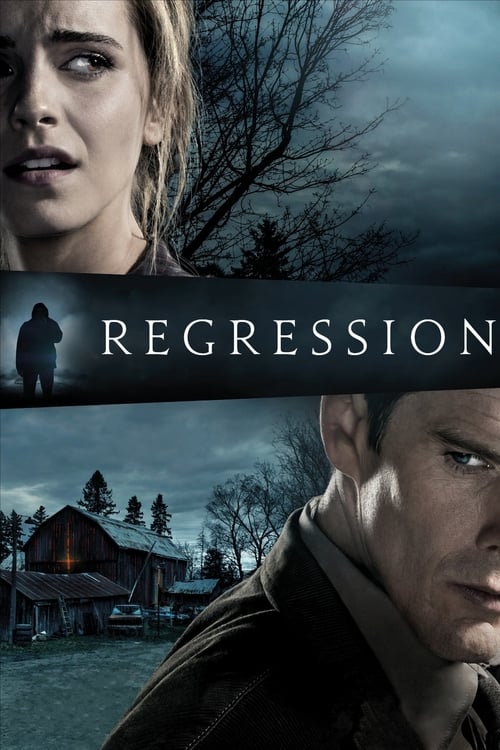Minnesota, 1990. Detective Bruce Kenner investigates the case of young Angela, who accuses her father, John Gray, of an unspeakable crime. When John unexpectedly and without recollection admits guilt, renowned psychologist Dr. Raines is brought in to help him relive his memories and what they discover unmasks a horrifying nationwide mystery.
Regression – Film Review
Published August 1, 2023

The story is set in the 1990s and centers around Detective Bruce Kenner, played by Ethan Hawke, who is investigating the alleged sexual abuse of a young woman, Angela, portrayed by Emma Watson. The accused is her father, John Gray, played by David Dencik. As the investigation unfolds, the plot becomes increasingly tangled and hard to follow. Amenábar tries to incorporate elements of psychological thriller and supernatural horror, but the execution falls flat, leaving the viewer more confused than intrigued.
One of the most glaring issues with the film is its lack of character development. Detective Kenner is a stereotypical brooding cop with a troubled past, and despite Ethan Hawke’s commendable performance, the character never evolves beyond this one-dimensional archetype. Emma Watson’s Angela, too, lacks depth and emotional complexity, and her portrayal fails to elicit genuine sympathy from the audience.
The supporting cast, including David Dencik and David Thewlis, is competent in their roles, but the script provides them with little substance to work with. David Thewlis plays Professor Kenneth Raines, a psychotherapist who employs regression therapy to unearth repressed memories in Angela. However, the film’s exploration of this controversial therapeutic technique is superficial and raises ethical questions without delving into them further.
The film’s narrative is perhaps its most significant flaw. While Amenábar attempts to build suspense and intrigue, the story quickly devolves into a tangled mess of supernatural elements, psychological trauma, and religious undertones. Regression tries to address themes of trauma, memory, and faith, but the lack of cohesive storytelling undermines any potential for deeper exploration. The plot twists feel forced and manipulative, rather than genuinely surprising or thought-provoking.
Visually, the film is competent, with Amenábar displaying his talent for creating atmospheric scenes. The cinematography, led by Daniel Aranyó, effectively captures the dark and eerie ambiance of the story’s small-town setting. However, even the most beautiful shots cannot compensate for the film’s lack of substance.
Another aspect that deserves critique is the film’s pacing. Regression is a slow burn that attempts to build tension, but instead, it drags on, making it difficult to maintain interest throughout its runtime. Many scenes feel unnecessarily extended, contributing to a sense of frustration rather than anticipation.
The film’s attempt to blend psychological thriller with supernatural horror does not pay off. Instead of enhancing the overall experience, these elements clash, resulting in a jarring and unsatisfying viewing experience. The horror elements are particularly disappointing, as they feel clichéd and predictable, relying on cheap jump scares rather than building genuine terror.
Moreover, the film’s handling of the subject of repressed memories and abuse is irresponsible and potentially harmful. While it is essential to address these sensitive issues in film, Regression sensationalizes and misrepresents them, perpetuating harmful myths and misconceptions about trauma and therapy.
Regression, directed by Alejandro Amenábar, is a lackluster and confusing film that fails to deliver on its promising premise. With weak character development, a convoluted plot, and a mishandling of sensitive themes, it falls short of the director’s previous works. While the visual elements display a glimmer of Amenábar’s talent, they cannot salvage the film from its narrative shortcomings. If you are a fan of Amenábar’s earlier films, you may be disappointed by this lackluster addition to his filmography.
